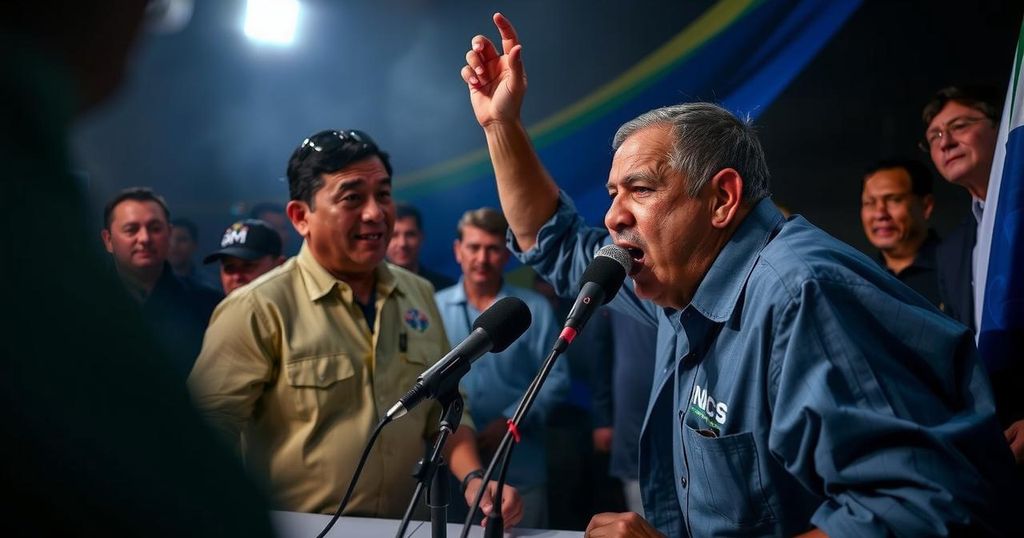Politics
ÁLVARO DELGADO, BROAD FRONT, CARIBBEAN, COLORADO PARTY, CONGRESS, DEMOCRACY, ECONOMIST INTELLIGENCE UNIT, ELECTIONS, FRENTE AMPLIO, LATIN AMERICA, LONDON, LUIS LACALLE POU, MONTEVIDEO, NATIONAL PARTY, NICOLÁS SALDÍAS, NICOLAS SALDIAS, POLITICS, PRESIDENTIAL ELECTION, SOUTH AMERICA, SOUTH AMERICAN, TRADE RELATIONS, U. S, URUGUAY, YAMANDÚ ORSI
Jamal Walker
0 Comments
Uruguay Faces Competitive Runoff for Presidential Election
The presidential runoff in Uruguay sees Álvaro Delgado of the National Party and Yamandú Orsi of the Broad Front locked in a closely contested race after neither gained a majority during the first round. With issues of economic policy, public safety, and voter apathy at the forefront, both candidates present contrasting visions for the future of Uruguay as they seek to secure a decisive victory.
Uruguayans are poised to engage once more at the polls as the second round of the presidential election approaches. Following a tightly contested first round, where Álvaro Delgado of the National Party secured only 27% against the Broad Front’s Yamandú Orsi’s 44%, the need for a conclusive victory has arisen. Notably, the governing coalition managed to gather 20% through other conservative parties, giving Delgado a strategic advantage.
In the upcoming election, Delgado, a veterinarian with political tenure as Secretary of the Presidency, aims to maintain the continuity of President Luis Lacalle Pou’s policies while promoting an image of stability. He advocates for pro-business reforms and seeks to further explore trade relations with China, amid a thriving economy expected to grow over 3% this year.
On the other hand, Orsi, with roots in the working class and a close association with former President José Mujica, seeks to revert back to a governance style marked by social liberalism. He proposes a new left vision, offering tax incentives and reforms that aim to enhance Uruguay’s agricultural sector, while addressing the surge in violent crime that has influenced voter sentiment.
Both candidates, despite their differing political ideologies, have faced criticism for their campaigns lacking charisma and urgency, a trend reflective of broader themes of voter apathy and uncertain electoral enthusiasm. Analysts highlight that the general atmosphere is devoid of the intense polarization seen in other democracies, favoring a more measured and consensus-based dialogue regarding socio-economic priorities.
The recent electoral climate in Uruguay has shifted dramatically, moving from expectations of a predictable outcome to a highly competitive runoff. The results of the first round showed a clear division between leftist and conservative ideologies, with previous governance by the Broad Front now challenged by the National Party. Following a significant policy shift in the last electoral period, which included progressive social legislation, the current election represents a crucial moment for the country’s political landscape amid rising concerns over public safety and economic stability.
The upcoming runoff in Uruguay indicates a pivotal moment where past political practices and the electorate’s response to evolving social issues culminate. Both Álvaro Delgado and Yamandú Orsi represent two distinct paths forward amidst an environment characterized by uncertainty and a desire for stability. The election not only seeks to define immediate leadership but also reflects deeper societal challenges and aspirations within Uruguay’s democratic context.
Original Source: abcnews.go.com




Post Comment